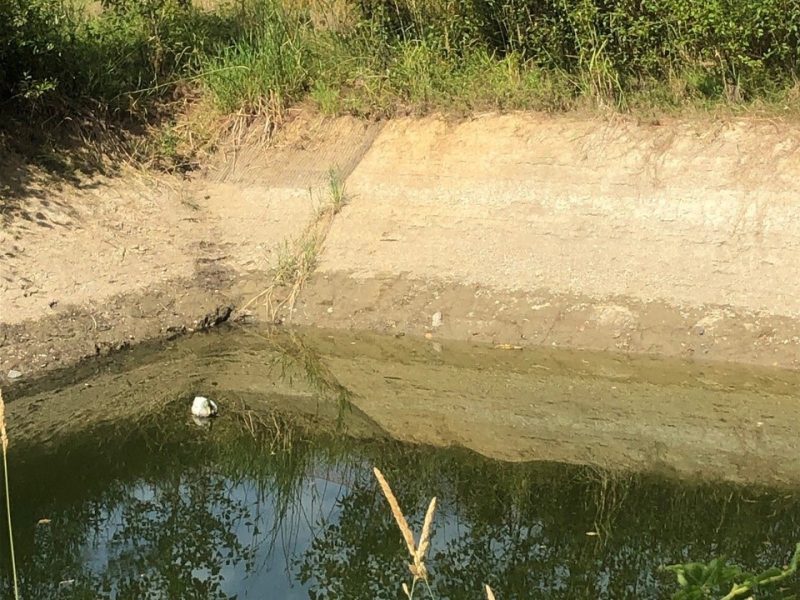Mid-Island Farmers Institute representatives spoke to the Comox Valley Regional District this week to advocate for a coordinated response to the region’s water shortage and threat of restriction on irrigation water.
“We have a dugout at our farm and it’s virtually empty,” institute president and produce grower Diane Jackson of Fitzgerald Farms in Merville told CVRD directors on August 15.
Jackson says she has been watering her crops just once a week since early July in order to conserve water.
“We’re looking at having to truck water in for our cistern in the future, which will cost about $200 a week to water once a week in order to feed the valley,” says Jackson, who sells her produce locally through farmers markets and other channels. “We’re really hoping that we can get the CVRD along with some of the other people that are involved to come up with a good crisis management plan.”
Jackson also typically irrigates pasture for her sheep, but low yields mean she ordered winter hay in early July knowing supplies would be short, a theme expanded on by institute director Arzeena Hamir of Amara Farms in Courtenay.
Hamir says one livestock grower she knows has already started feeding his winter hay because of low yields this year.
“Vegetable growers are now having to sacrifice crops and pull them out because there’s no water left,” Hamir adds. “We are having to face, as farms, natural resource officers coming to our properties and telling us that, potentially, we can no longer water.”
Hamir says the Mid-Island Farmers Institute would like the CVRD to convene a roundtable focused on the Tsolum watershed with representatives from the province, First Nations, farmers institutes, forest industry and conservation groups.
“You are the level of government that’s closest to the farmers,” she says. “You have relationships with many of the others, and have the ability to bring people together, to bring organizations together.”
This is in line with recommendations of the CVRD’s own watershed plan, and vital to local food security.
“When we can no longer water our fields, water our animals, and we are being told to sacrifice and stop watering while you still have forestry happening up in the headwaters, it just does not make sense,” she says. “It is the farmers that are having to bear the brunt of the mismanagement.”
The institute would also like the CVRD to support zero-interest loans to farmers to install dugouts and cisterns for water storage, noting that existing provincial programs require excessing paperwork that effectively double the cost of projects that should come in under $10,000.
CVRD directors will discuss the institute’s recommendations prior to making any decisions.


 New dairy entrants selected
New dairy entrants selected